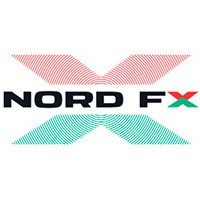You might not realize, but multinational firms play a significant role in the foreign exchange market. The main players in the Forex market are banks, investors and corporations. Let’s take a closer look into exploring each of these, but more importantly how multinational firms influence this powerhouse market of foreign exchange.
Banks
Central and national banks are responsible for the currency source, managing and regulating interest and inflation rates, while also protecting their own country’s currency. The banks main effect on the foreign exchange market is their responsibility for conducting monetary policy and to promote price stability within their own currency. These monetary policy actions, generally, are currency interventions taken to appreciate or depreciate their national currency to calm inflation.
Investors
Individual investors make up the smallest portion of players in the FX market relative to volume. Market participants such as investors use foreign exchange the hedge against international currency pairs. Investors in the FX market do so by using what is called currency pairs.
Multinational Corporations
The role of multinational businesses in the Forex industry plays a vital role in various ways. Generally, these businesses expose themselves to the foreign exchange market due to exchange rates in converting currency. These powerhouse companies have influence in five different ways. Let’s explore more.
Production & Manufacturing
Possibly one of the most common areas that impact the forex industry that multinational corporations carry-out is production and manufacturing. Much of the time companies must outsource their manufacturing as some countries simply do not have the basic necessities readily available for raw materials. When companies outsource, this benefits both parties and the global economy. The reason this affects the FX market is when it comes to settling the accounts. Generally speaking, companies wish to be paid in their national currency. This means that the country paying for the service must enter the FX market to take on the additional risk of conversion rates.
Franchises
Franchises are another popular force in which multinational companies influence the foreign exchange markets with. Franchises are present across the globe, but it’s important to take into consideration the home country. Much of the time the residing country of the franchise wishes to have their fees paid in their founding country’s currency. Fee and payments make the exchange market thrive as companies must exchange currencies to settle accounts in the correct foreign currency.
Foreign Direct Investments
Foreign direct investments, or more commonly known as FDI, can best be described as domestic firms establishing new subsidiaries, such as production facilities, distribution networks, banking, properties or a management team in other countries. This is rather common and can be seen in almost all multinational firms.
Joint Ventures
The next way in which multinational companies conduct business in the forex market are joint ventures. Joint ventures can best be defined as, two companies engaging in business to produce a particular good or service. What is important to note is that in a joint venture, the two companies share expenditures revenues and assets, unlike FDI’s.
Acquisitions
The last piece of the puzzle within multinational corporations and forex markets is acquisitions. Acquisitions allow one firm to enter international territory with an already existing production facility and distribution network. One of the most recognizable examples might be the Pfizer acquisition of Hospira; with expanding international locations further to be present in Hong Kong, Belgium, China, Germany, India, Ireland, Italy, Japan, Singapore, and the USA as a whole.
Overall multinational companies have a pivotal role in the progression of the FX market. Exchanging currencies and taking on the risk of international currency exchange is fundamental in their line of business and one foundation which drives the FX market.
 The firm grants access to over 450 trading instruments across six major asset classes, including forex, commodities, metals, indices, shares, and futures, catering to diverse trading preferences.
The firm grants access to over 450 trading instruments across six major asset classes, including forex, commodities, metals, indices, shares, and futures, catering to diverse trading preferences. Trump has declared that the United States could become the global capital of the crypto industry. To achieve this, he proposes reducing regulatory pressures.
Trump has declared that the United States could become the global capital of the crypto industry. To achieve this, he proposes reducing regulatory pressures. Forex trading is a captivating endeavor, promising both active and passive income streams. Yet, mastering forex is a continuous journey that transcends expertise levels, be it a novice or a seasoned trader...
Forex trading is a captivating endeavor, promising both active and passive income streams. Yet, mastering forex is a continuous journey that transcends expertise levels, be it a novice or a seasoned trader... In a resounding victory, NordFX, a prominent brokerage firm, has been crowned the "Best News & Analysis Provider" of 2023...
In a resounding victory, NordFX, a prominent brokerage firm, has been crowned the "Best News & Analysis Provider" of 2023... Errante, the premier online broker, is dedicated to delivering top-tier services and forging long-lasting, trust-based relationships with our clients. Our mission is to enhance your online trading journey...
Errante, the premier online broker, is dedicated to delivering top-tier services and forging long-lasting, trust-based relationships with our clients. Our mission is to enhance your online trading journey...